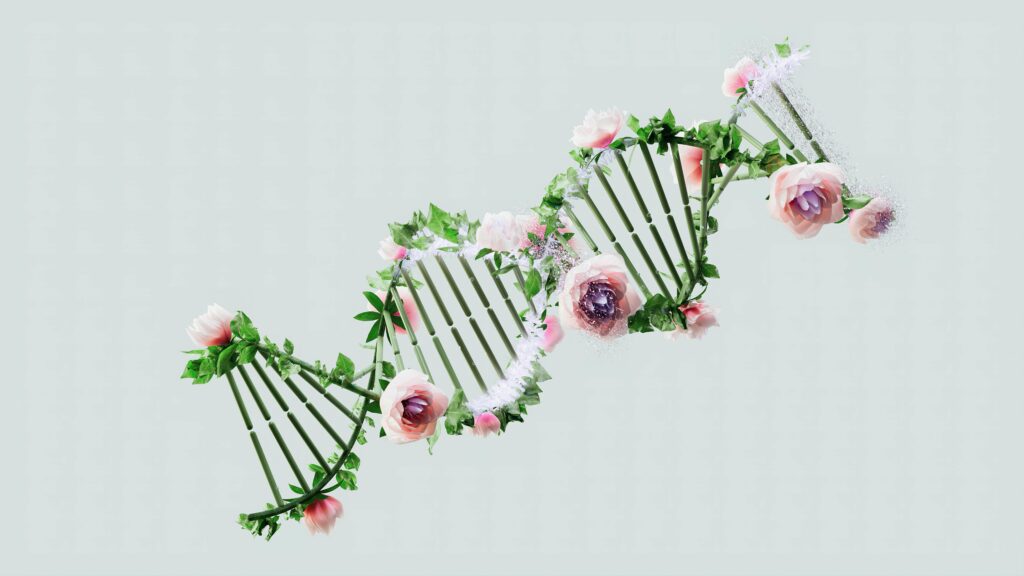Hey there, JD Bolt here. Today, we’re diving into the fascinating world of epigenetics. If you’ve ever wondered why identical twins can have different health outcomes despite sharing the same DNA, epigenetics holds the answer.
What is Epigenetics?
Epigenetics is the study of changes in gene expression that don’t involve changes to the underlying DNA sequence. In simpler terms, it’s about how your behaviors and environment can cause changes that affect the way your genes work.
Think of your genetic code as the hardware of a computer, and epigenetics as the software. The hardware (your DNA) remains the same, but the software (how your genes are expressed) can be modified.
Key Concepts in Epigenetics
- DNA Methylation: This is when methyl groups are added to DNA molecules, which can change how genes are expressed.
- Histone Modification: Histones are proteins that DNA wraps around. Changes to these proteins can affect gene expression.
- Non-coding RNA: These RNA molecules don’t produce proteins but can regulate gene expression.
Why Epigenetics Matters for Biohackers
As biohackers, we’re always looking for ways to optimize our health and performance. Epigenetics offers a powerful tool for this optimization. Here’s why it matters:
- Lifestyle Impact: Your diet, exercise habits, stress levels, and sleep patterns can all influence your epigenetic profile.
- Reversibility: Unlike genetic mutations, many epigenetic changes are reversible. This means we have the power to influence our gene expression through lifestyle choices.
- Personalized Health: Understanding your epigenetic profile can help tailor health interventions to your specific needs.
Practical Ways to Optimize Your Epigenetics
- Nutrition: Certain nutrients like folate, B vitamins, and compounds found in cruciferous vegetables can support healthy DNA methylation.
- Exercise: Regular physical activity has been shown to cause beneficial epigenetic changes, particularly in genes related to metabolism and inflammation.
- Stress Management: Chronic stress can lead to harmful epigenetic changes. Practices like meditation and yoga can help mitigate this.
- Sleep: Quality sleep is crucial for maintaining a healthy epigenetic profile. Aim for 7-9 hours of sleep per night.
- Environmental Factors: Minimize exposure to toxins and pollutants, which can negatively impact your epigenetics.
Measuring Your Epigenetic Age
One exciting application of epigenetics is the concept of biological age. While your chronological age marches forward at a steady pace, your biological age can be influenced by lifestyle factors.
Epigenetic clocks, like the Horvath clock, use DNA methylation patterns to estimate your biological age. This can give you insight into how well you’re aging at a cellular level.
The Future of Epigenetics
The field of epigenetics is rapidly evolving. Here are some exciting developments on the horizon:
- Epigenetic Therapies: Researchers are exploring ways to target specific epigenetic markers to treat diseases.
- Precision Medicine: Epigenetic profiles could help doctors tailor treatments to individual patients.
- Transgenerational Epigenetics: There’s growing evidence that some epigenetic changes can be passed down to future generations.
Epigenetics offers a powerful lens through which we can view health and longevity. By understanding and optimizing our epigenetic profile, we can take proactive steps towards better health and performance.
If you’re interested in learning more about epigenetics and how to apply this knowledge to your biohacking journey, check out my book. It dives deeper into the science of epigenetics and provides actionable strategies for optimizing your gene expression. Visit www.biohackingthebillionaire.com to get your copy, explore epigenetic testing options, or schedule a consultation with an epigenetics expert.
Your health is your greatest asset. Invest in it wisely.
Cheers!
- JD Bolt
References:
- Feinberg, A. P. (2018). The Key Role of Epigenetics in Human Disease Prevention and Mitigation. New England Journal of Medicine, 378(14), 1323-1334.
- Alegría-Torres, J. A., Baccarelli, A., & Bollati, V. (2011). Epigenetics and lifestyle. Epigenomics, 3(3), 267-277.
- Horvath, S. (2013). DNA methylation age of human tissues and cell types. Genome Biology, 14(10), R115.
- Kanherkar, R. R., Bhatia-Dey, N., & Csoka, A. B. (2014). Epigenetics across the human lifespan. Frontiers in Cell and Developmental Biology, 2, 49.
- Cavalli, G., & Heard, E. (2019). Advances in epigenetics link genetics to the environment and disease. Nature, 571(7766), 489-499.


